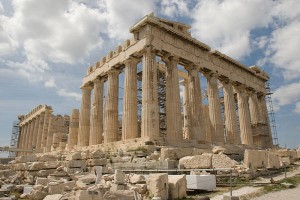I recently read this powerful quote on tradition from The Case for Covenant Communion : “It is the power and danger of tradition that it can create a paradigm of understanding and interpretation so compelling and satisfying that it renders many minds oblivious to problems and incapable of imagining another viewpoint.” (15)
: “It is the power and danger of tradition that it can create a paradigm of understanding and interpretation so compelling and satisfying that it renders many minds oblivious to problems and incapable of imagining another viewpoint.” (15)
Of course, in many evangelical circles today, it is a matter of great pride not to have a tradition. Entire denominations today claim to be free from tradition. This is obvious nonsense. No human is free of tradition, including all denominations and faith groups who pride themselves on having no tradition.
I don’t hate tradition. When it is consistent with the Bible, I love it. Tradition, when consistent with Scripture, is a wonderful thing. However, when inconsistent, it can so effectively blind the eyes, stop the ears, and dull the mind as to prevent even the consideration of the most cogent Word-based arguments.
No, I am no enemy of tradition. But, that said, all tradition, even tradition held by those who claim to hold to no tradition, must be answerable to the Scriptures. Further, and perhaps even more importantly, we must be prepared to not only examine but discard those traditions that, when compared to the Bible, are found wanting.
Further, I have found that tradition that is held by those who claim to hold no tradition is even more powerful because those traditional beliefs cannot be recognized as such. A tradition that cannot be recognized as a tradition becomes even more powerful and potentially dangerous.
I have recently had the opportunity to practice much of this in my own life as I have, over the past couple of years or so, come to question and reject many positions that I held based upon tradition while not recognizing them as such. [continue reading…]
. In this section of the book, he is discussing 1 Corinthians 2:2, 6-8. On pages 50-51, he writes:
